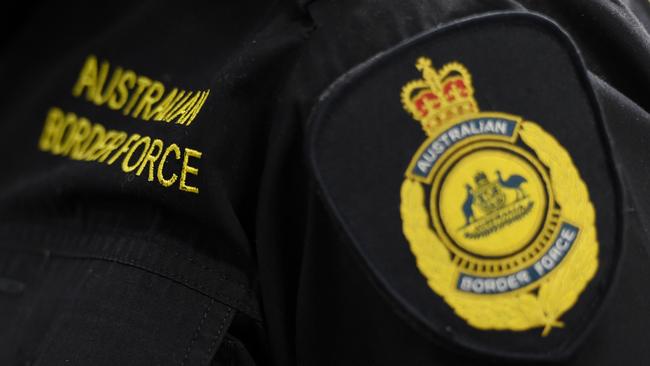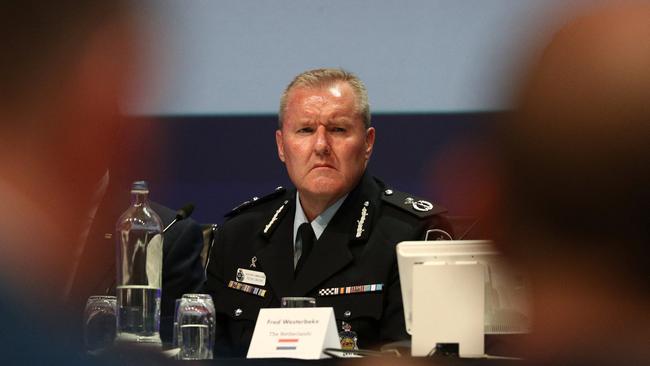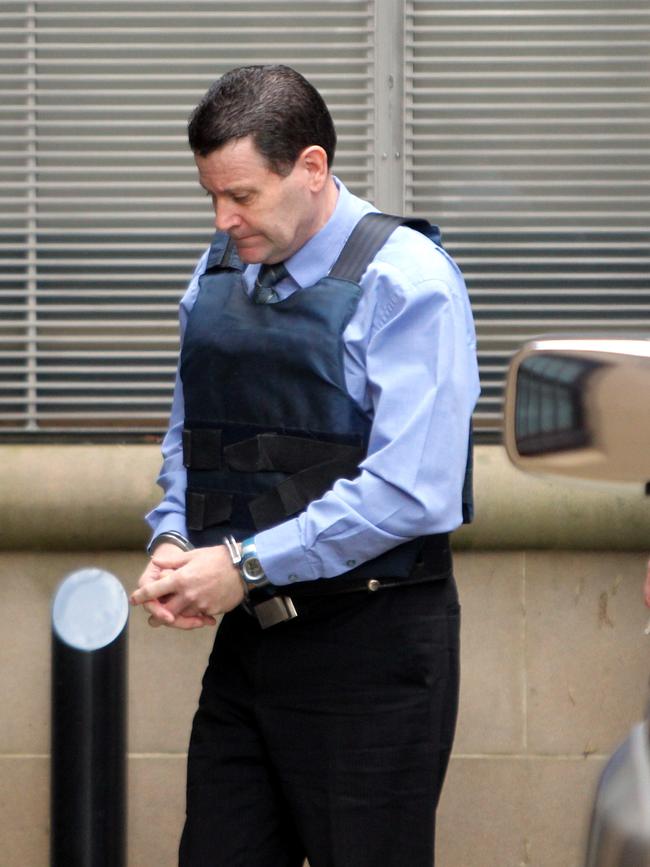Gap in laws is preventing cops catching their own who go bad
Law enforcement officers seduced by money are going rogue after being “turned” by criminals. Here’s how legal gaps are making it hard for authorities to get evidence against them.
Crime in Focus
Don't miss out on the headlines from Crime in Focus. Followed categories will be added to My News.
Exclusive: Law enforcement officers seduced by money are being lured to the “dark side” of joining the criminals but legal gaps are seeing it take months if at all to get evidence against them.
News Corp Australia has learned authorities have detected active attempts by overseas-based crime groups to turn police, border force and Home Affairs officials in key units here to provide intelligence and instruction to facilitate drug and other illicit trafficking.
But a critical “digital age” gap in telecommunication intercept laws in Australia is preventing authorities from getting warrants to tap mobile or emails overseas in less than 10 months and in some cases up to a year and a half, rendering internal probes ineffective.
The same law gap exists for catching any Australian criminal who stores their data offshore in providers such as WhatsApp, Hotmail and Facebook but rogue officers were being seen as worst case examples, given their trusted positions.

The Australian Commission for Law Enforcement Integrity (ACLEI) has told the Parliamentary Joint Committee on Intelligence and Security, data stored overseas with foreign communications providers were too hard to access and current mutual assistance request procedures were too time consuming and slow.
ACLEI is tasked with exposing corrupt conduct within Commonwealth agencies
Including Home Affairs Department, the AFP, ABF, the Australian Transaction Reports and Analysis Centre (AUSTRAC) and the Australian Criminal Intelligence Commission.
“The effort involved in pursuing the information and the time it takes for it to be provided diminishes its utility,” it concluded in its summary submission.
It cites a covert case where a corrupt AFP officer disclosed intelligence to criminal entities via an ex-AFP officer, for which he was jailed for 22 months, but accessing his Hotmail account took 10 months limiting its scope.
MORE NEWS
What Aussies really think of China
$1.5m ‘Noah’s Ark’ flight to get pets home
Why you’ll find it harder to get a home loan
While not referring to a specific case, AFP Assistant Commissioner (crime command) Peter Crozier told News Corp Australia criminals were constantly looking for advantages including turning officers.

“We have great faith in our people, our people are committed and most people in the organisation join the AFP or other law enforcement to work for public good but there might be people who are vulnerable as a result of a range of things and we need to have measures in place to identify where those vulnerabilities are,” he said.
“But yes absolutely this is another vulnerability they (organised crime groups) are trying to exploit and when we talk about the (illicit) supply chain, we are not talking about just the logistical arrangement but all the elements of that. If they can corrupt and influence people and that will assist them in their business then that is what they are going to do.
“We are trying to do the same, we are looking for vulnerabilities in their processes as well to exploit theirs to push our people who use techniques and undercover methods and human source recruitment – all these things exist so we should not expect that they are not trying to do what we are trying to do.”

In its submission reviewing adequacy of current telecommunication laws, the Home Affairs Department said the digital age had exposed gaps in current laws and catching any criminal where overseas data evidence was required, was being thwarted.
“If electronic evidence cannot be obtained in accordance with court time frames, this can result in charges being withdrawn, less serious charges being laid or a weaker case going before the court which does not show the full picture of criminality, and may ultimately lead to lower sentences being imposed, if at all,” it concluded.
Civil liberty groups and privacy advocates said law enforcement should not be given greater powers to catch criminals exploiting any gaps.
The Australian Privacy Foundation – whose co-founder Simon Davies is languishing in jail overseas awaiting extradition to Australia for alleged child sex offences – said law enforcement moves to modernise digital laws “obfuscates accountability through inadequate transparency”.


